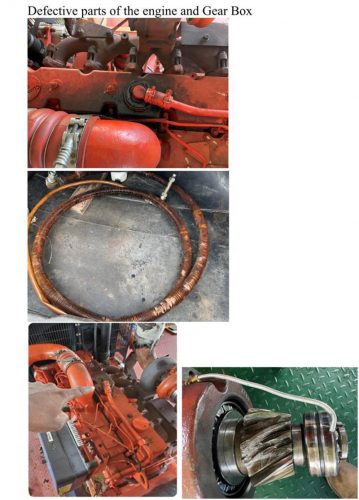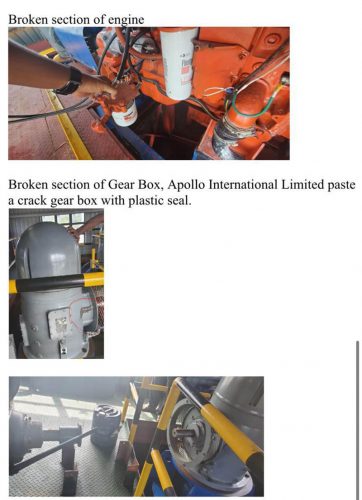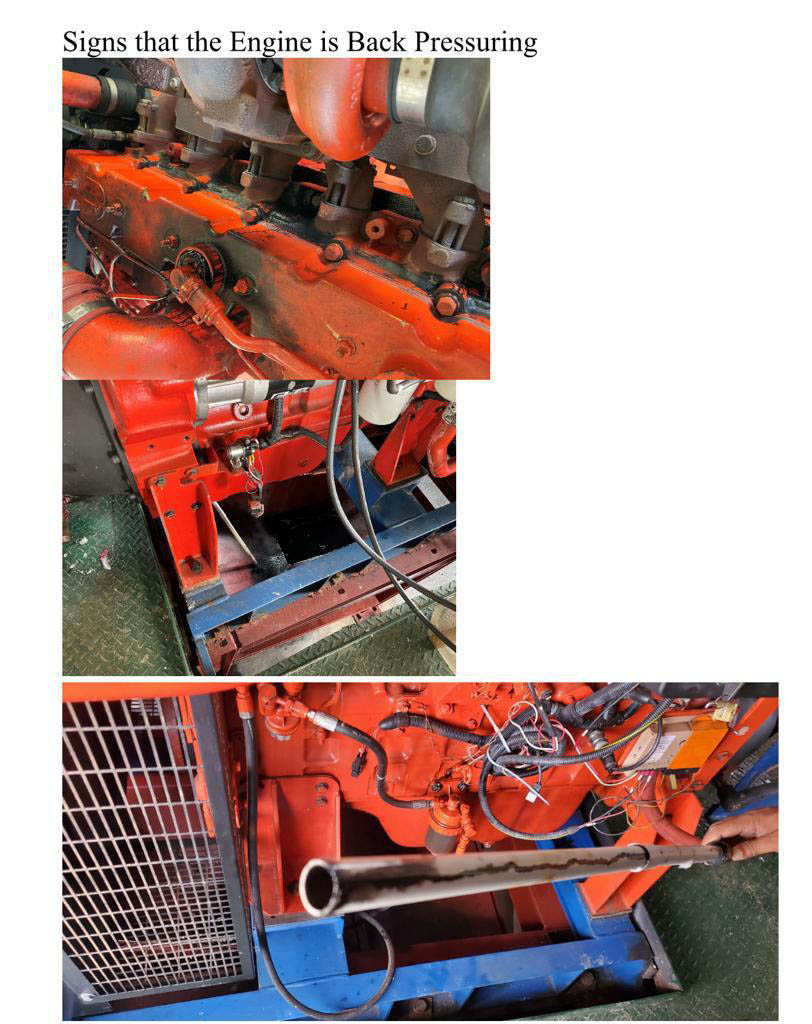The Indian supplier of the nine non-performing drainage pumps procured under the previous APNU+AFC government has signalled its preparedness to send a team of engineers to resolve the matter and it has also been issued with an ultimatum.
Acting on behalf of the National Drainage and Irrigation Authority (NDIA), Attorney General, Anil Nandlall wrote to Apollo International last December seeking a resolution. In response to government’s concerns, the Indian supplier said it is ready to find an amicable solution.
With a number of mechanical issues unearthed during the installation and commissioning of the pumps, NDIA engineers concluded from their independent research that the engines were rated for fire pumps and were undersized. As such, they could not function and be used effectively for the purpose outlined in the specifications.
 This situation has raised the question of the type of due diligence done by Guyana in India and when the pumps arrived here.
This situation has raised the question of the type of due diligence done by Guyana in India and when the pumps arrived here.
Nandlall recently told this newspaper that the government will now have to discuss a timeframe in which the Apollo engineers can visit and find a solution.
In a letter sent to the  company by the Legal Affairs Minister and seen by this newspaper, the government asked the company to replace the “fire engines” with the required continuous engine performance.
company by the Legal Affairs Minister and seen by this newspaper, the government asked the company to replace the “fire engines” with the required continuous engine performance.
The company was told that if it failed to meet the government’s demand the “NDIA will purchase and install the engines and deduct the cost for doing same from the balance of the contract price.”
In his presentation on the 2022 budget, Minister of Agriculture Zulfikar Mustapha told the National Assembly that with the help of the Minister of Legal Affairs, they are trying to recoup monies spent for the purchase of the unworkable pumps.
He also noted that under the former Minister of Agriculture Noel Holder, 75 per cent of the monies were paid for the procurement of the pumps.
“… When we first took office in 2020, the National Drainage and Irrigation Authority was plagued with inoperable pumps and excavators even though our farmers were paying exorbitant rates,” Mustapha said to the House.
The Agriculture Minister explained that during the commissioning of the pumps “all sorts of mechanical issues” were observed from the 30th December 2020, to present. The issues ranged from parts overheating, electrical problems with the control panel, alignment difficulties, leaking gear box, broken drive shafts, and engine back pressuring, broken gears and gear box among others.
“Due to the many problems that were observed during the commissioning stage of the pumps the National Drainage and Irrigation Authority began to request from Apollo International Limited the performance curves, engine specifications and clarification of the performance of the pumps and engines supplied,” but was told to contact the manufacturer, CUMMINS INDIA.
“It is apposite to point out that your company, being the contracted party to design and supply the engines should have been able to provide the engine specifications upon request,” the Attorney General said to the company on its failure to produce the requested information.
Nandlall, in his letter to the company, highlighted that it was made aware of the mechanical issues which he pointed out stemmed from the fact that the engines were not able to perform “as per the specifications required and for the intended application envisaged.”
Awarded
The mobile and fixed heavy-duty drainage pumps were procured under a Line of Credit of US$4 million from India.
Apollo International Limited was awarded a contract by the NDIA on the 5th June 2018, for the Design, Supply, Installation and Commissioning of Nine Fix and Three Mobile High-Capacity Drainage Pumps and Associated Structures/Equipment.
The new fixed pumps were to be installed at Devonshire Castle and Hampton Court, on the Essequibo Coast; Den Amstel, on the West Coast of Demerara; Nooten Zuil, Hope, and Mora Point, Mahaicony, on the East Coast of Demerara; and Rose Hall Town, Corentyne. The mobile pumps were to be installed at Ruimveldt, Sussex Street and Cowan Street. The aim was to have the pumps working to specifically aid drainage of the coast particularly at high tide, in this way Minister Mustapha had said that they would have been able to build capacity to 24 hours of drainage during the rainy seasons.
The NDIA in their procurement specifications required drainage pumps with the capabilities of 245 BPH at 1500 RPM for 80 cusec and 310 BPH at 1500 RPM for 100 cusec. However, they were supplied with nine engines for fire-fighting application.
Both Mustapha and Nandlall told this newspaper that prior to leaving government in 2015, then Chief Executive Officer of the NDIA, Lionel Wordsworth, had advised against the purchase of such pumps after returning from a visit to India.
Mustapha explained that it is unclear what went wrong during the procurement and he is currently trying to get answers.
Moreover, in the letter sent to the company it was pointed out that the engineers who witnessed the testing and approved the delivery only saw the pumps functioning for 15 to 20 minutes.
“A testing of the engines for such a short duration could only show the engine performance at its prime,” Nandlall contended in his letter.
“As (per) your company’s reliance on the fact that the engines were inspected and approved it is contended that the NDIA team that was present at the engine testing held in India exercised the care, diligence and skill that a reasonably prudent person would exercise in similar circumstances,” Nandlall posited.
Mustapha had said that with government working on developing a comprehensive plan to upgrade the country’s drainage system, this year’s budget should see allocations for additional drainage pumps.
Pump stations will also be constructed at Charity and Andrews, Essequibo, A-Line Sluice, West Bank Demerara (WBD), Greenwich Park, East Bank Essequibo, West Watooka, Linden, and Black Bush Polder, Corentyne, to irrigate the polder frontlands. A drainage pump station will also be constructed at Adventure, Corentyne.






